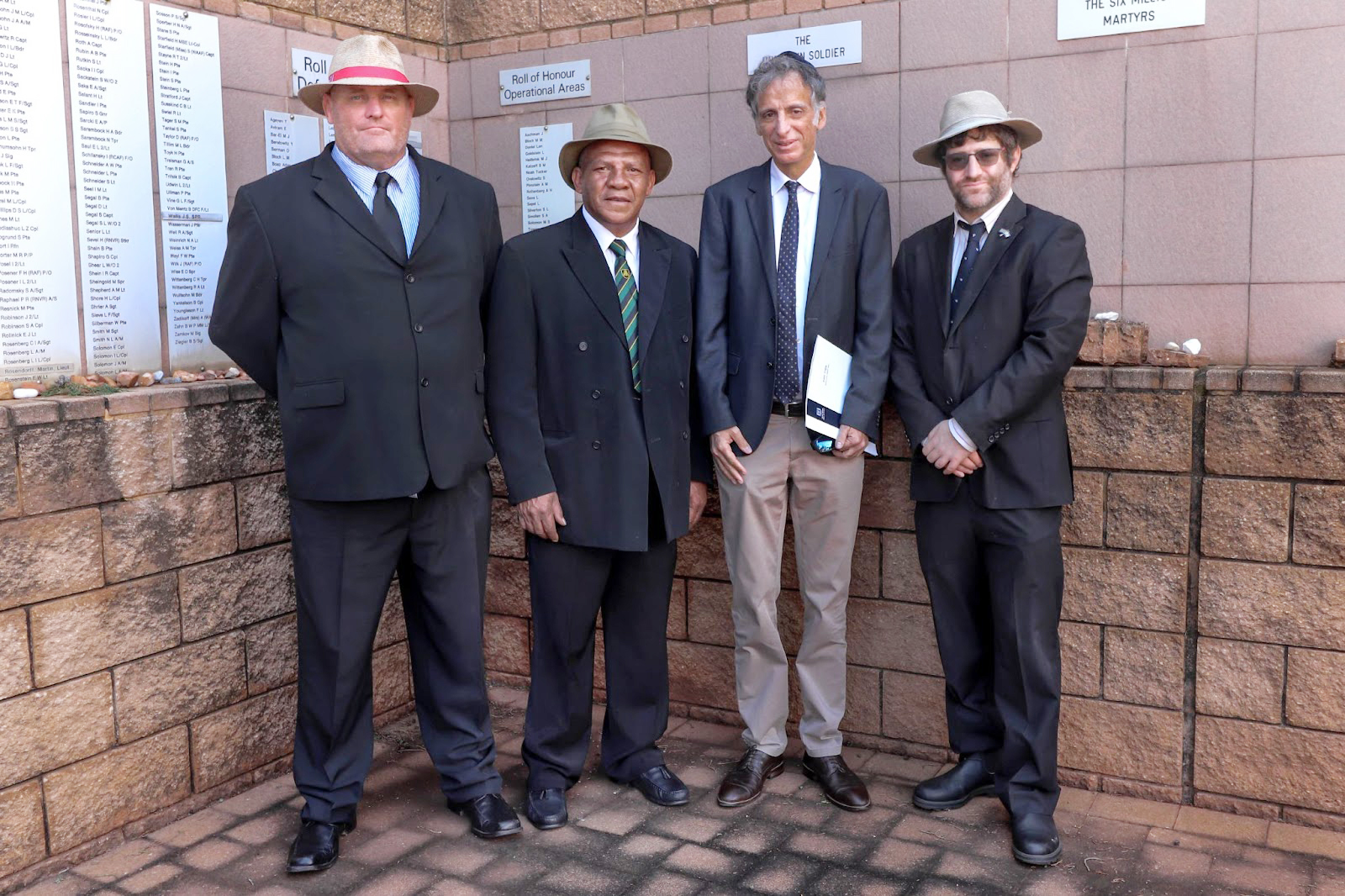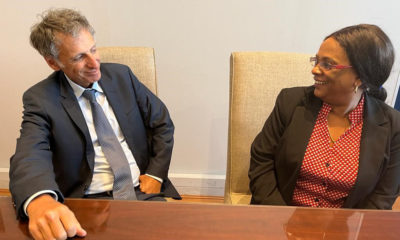
Israel

Cape Corps honoured for liberating Palestine, paving way for Jewish state
The Balfour Declaration of 1917, in which the British government announced its support for the establishment of a Jewish homeland in Israel, would have been meaningless were it not for the Commonwealth soldiers, including the Cape Corps comprising members of South Africa’s coloured community, who fought valiantly to relieve Palestine of the Ottoman Turks.
So wrote David Kaplan, co-founder of the multimedia platform Lay of the Land, ahead of the commemoration of the victories of the Cape Corps in the battles of Square Hill and Kh Jibeit in Palestine during World War II at the Jewish War Memorial in West Park Cemetery on 27 November.
Both these battles occurred between 17 and 20 September 1918 as part of the Greater Battle of Megiddo fought by the Cape Corps. Their victories enabled the issuing of the Balfour Declaration, beginning a process that eventually resulted in the declaration of the state of Israel on 14 May 1948.
“The Cape Corps members were victorious in the Battle of Square Hill on 19 September 1918,” Hilton Kaplan, the national chairperson of the South African Jewish Ex-Service League, said at the ceremony. “They captured 181 prisoners at the cost of one of their members losing his life and another being wounded. After this success, they continued to take Kh Jibeit, a hill 700m north of Square Hill. Not having artillery support at this time, they unfortunately lost 51 men with a further 101 being wounded and one being taken prisoner. These two actions were decisive in allowing General Allenby to break through to Damascus and take the Ottoman Empire out of the war. This battle took place at Megiddo, approximately 29km southeast of Haifa.”
Clearing the region of the occupying Turks paved the way for a British Mandate and ultimately Jewish statehood in 1948, according to David Kaplan.
City of Johannesburg Councillor Vasco Da Gama said, “Before World War I, my grandfather, Joachim Da Gama, was part of the Cape Corps. My father, Moses Da Gama, joined the Cape Corps in 1938.”
Da Gama said the City of Johannesburg appreciated the ceremony being held in remembrance of those who died during World War I and World War II as well as “those who were injured during World War II, with some still alive today, battling with their wounds, and those who need to be taken care of”.
The plaque to the Cape Corps was unveiled by Commander Adeel Carelse MMM (retired), whose grandfather fought bravely at Square Hill and Kh Jibeit.
“The Battle of Square Hill created the groundwork for the establishment of the state of Israel and the right of the people to exist,” Carelse said. “As descendants of those brave men who fought at the Battle of Megiddo, we pay homage to all servicemen. We cannot talk about the Battle of Square Hill without talking about Sergeant Joe Seratzky. It’s been a hard job, but between Peter [Bailey, the former chairperson of the South African Jewish ex-Service League] and me, we managed to uncover the information regarding Sergeant Seratzky who was actually a Jewish member who fought on the side of the first battalion of the South African Cape Corps. Very little has been said about him. This is something that we need to correct. We’re working on it as we speak so that he can take his rightful place within the battle order of the first battalion of the South African Cape Corps.”
Israel’s ambassador to South Africa, Eli Belotsercovsky, unveiled the memorial plaque in honour of the 644 black Southern Africans who went down with 140 Yishuv Jews on the SS Erinpura during World War II.
“The SS Erinpura was bombed off the coast of Libya on 1 May 1943 by the German Luftwaffe,” Hilton Kaplan said. “On board were 62 crew members, 140 Jewish volunteers, and 644 members of the African Zulu Pioneer Court, made up mainly of Tswana, Swazi, and Sotho volunteers from South Africa. East African volunteers were involved in the laying of the railway track from Haifa to Rosh HaNikra, and then after that were involved in the construction of the Rosh HaNikra tunnels so that the tracks could continue from Haifa to Beirut to support the war efforts in those days.”
“Today, we commemorate the soldiers who fought in your country in the two World Wars,” Belotsercovsky said. “World War I was, in a way, pushed away from our collective memory by the atrocities of World War II. But we need to remember that also during World War I, more than 16 million people lost their lives. Out of them, 10 million were soldiers. During World War I, about 30 million Jewish soldiers were enlisted and fought, and 170 000 of them lost their lives. More than 250 000 South Africans volunteered in World War I in support of the British Army. More than 7 000, unfortunately, didn’t come back. For the Jewish soldiers in World War I, fighting for an independent Israel was a special duty. They felt they were participating in the huge effort to create the Jewish state. The Balfour Declaration was the result of this effort.”
Belotsercovsky said that 300 000 South Africans, including South African Jews, joined allied forces during World War II, and more than 11 000 didn’t return.
Belotsercovsky, whose father, Yaakov, fought in World War II and always saw 9 May (Victory Day) as the most important day, concluded, “We always try to remember these men who fought for us. We owe our existence to their heroism and bravery.”











yitzchak
December 1, 2022 at 10:06 am
Balfour Declaration was 2.11.1917.
Much of the land near the battle was bought by the JNF with a very large donation from Isaac Ochberg.
He later contributed ..in recognition of their War efforts
to the Coloured Community in Cape Town including their opera company the EOAN company.
Philip Weyers
December 11, 2022 at 3:01 am
The Balfour Declaration of November 1917 in which Jan Smuts played a significant role predated the Battle of Square Hill. What the Battle enabled was the defeat of the Ottomans in Palestine which in turn led to the Smuts Proposal at the San Remo Conference which gave England a mandate over Palestine and implementation of the Balfour Declaration despite at times strenuous attempts by England to renege on its provisions.